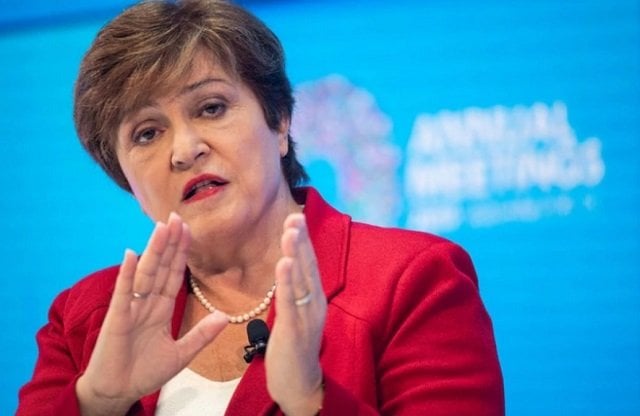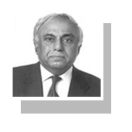Published in The Express Tribune on February 20, 2023
MUNICH: International Monetary Fund (IMF) Managing Director Kristalina Georgieva has said that her ‘heart goes out to the people of Pakistan’ but stressed the need for the Pakistani government to collect higher taxes by withdrawing subsidies to the rich.
Speaking to the German state broadcaster, Deutsche Welle, on the fringes of the Munich Security Conference, Georgieva acknowledged that Pakistan had been ravaged by the unprecedented floods last year.
She told the broadcaster that the IMF had asked Pakistan to take steps to function as a country and not to get into a “dangerous place” where the country’s debt needed to be restructured.
“Number 1 – tax revenues. Those who can, those that are making good money, public sector, private sector, they need to contribute to the economy,” she said, highlighting the two points that the IMF emphasised vis-a-vis Pakistan.
“And secondly, to have a fairer distribution of the pressure by moving subsidies only towards the people who really need it. It should not be like the wealthy benefit from subsidies. It should be the poor who benefit from them,” she added.
Earlier this month, the relevant Pakistani officials and the IMF staff concluded the ninth review of the $6.5 billion bailout package without a staff-level agreement. However, both sides agreed to a set of measures that could still help clinch the deal.
The Pakistani authorities had hoped that they would convince the IMF about implementing the conditions in a gradual manner but the hopes were dashed during the 10-day visit by the IMF mission.
Pakistan agreed to implement the Memorandum of Economic and Financial Policies (MEFP), which contained policy suggestions by IMF. Officials still hoped that the staff-level agreement could be reached soon.
There was a broad consensus with regard to leaving the rupee value to be determined by the market forces, lifting of the restrictions on the imports and allowing the already imported goods to be cleared.
Also the power tariff was to be increased and new taxes imposed to pave the way for the deal. However, because of a severity of the economic crisis, every agreed measure would be tough on an overwhelming majority of the Pakistani people.
Emphasising that Pakistan collect taxes from the rich and give benefits to the poor, Georgieva highlighted that the country did not need debt restructuring. “There is no debt restructuring for Pakistan. Rather, strict measures are needed to run the country.”
The IMF MD said that “we are demanding such measures from Pakistan which were urgently needed” so that “they can run as a country and not reach such a dangerous point where they need to rebuild”.
In separate comments, Georgieva said that money collected from the rich in the form of taxes should be spent on those who needed the government’s help. She stressed that it was “a very compassionate and reasonable” request.
She questioned why the rich in Pakistan should benefit from the subsidies and should not pay taxes in the face of tremendous challenges. She concluded by saying that the IMF was “very clear that it wants the poor people of Pakistan to be protected”.




